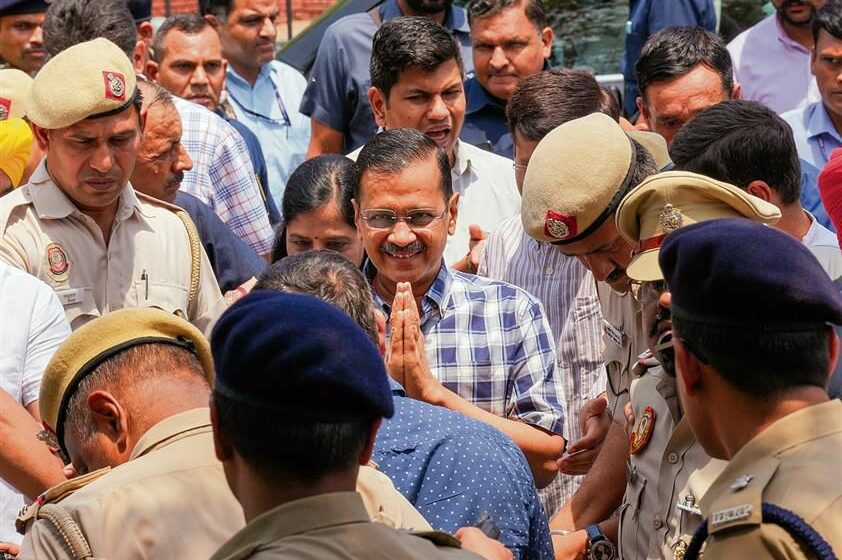In a recent development that has stirred Delhi’s political corridors, Chief Minister Arvind Kejriwal has been granted bail by a Delhi court in connection with the alleged irregularities surrounding the city’s excise policy. This decision comes amidst ongoing legal battles and political ramifications that have kept the spotlight firmly on the Aam Aadmi Party (AAP) leader.
Kejriwal’s bail plea was granted after a prolonged legal process that saw intense scrutiny by the Enforcement Directorate (ED), which is investigating allegations of money laundering linked to the scrapped excise policy in Delhi. The court’s decision to grant bail, allowing Kejriwal to walk free after posting a bail bond of Rs 1 lakh, marks a significant development in his legal ordeal.
The case against Kejriwal dates back to March 21, when he was arrested over accusations of irregularities in the excise policy. Despite receiving interim bail on May 10 to campaign for elections, he later surrendered and had been in judicial custody until this recent decision. His arrest and subsequent legal battles have not only impacted his political engagements but also drawn attention to governance issues in the national capital.
The legal proceedings have been closely followed by the public and media alike, reflecting broader concerns about transparency and accountability in government policies. The court’s decision to grant bail underscores the complexities involved in such high-profile cases, balancing legal considerations with political implications.
The ED’s role in investigating allegations of money laundering adds another layer of complexity to the case. The agency had initially opposed Kejriwal’s bail plea, highlighting the seriousness with which it views the allegations against him. However, the court’s decision reflects judicial independence and adherence to due process.
Throughout the legal proceedings, Kejriwal’s defense has argued for his innocence, stressing procedural lapses and political motivations behind the accusations. The legal team’s efforts culminated in securing bail, albeit after initial setbacks and a period of judicial custody.
In a broader context, Kejriwal’s bail has sparked discussions on political strategy and the implications for AAP, especially as Delhi prepares for upcoming elections. His tenure as Chief Minister has been marked by ambitious policy reforms and a vocal stance against corruption, positioning him as a prominent figure in Indian politics.
The timing of the bail decision also coincides with continued scrutiny over governance issues and policy initiatives in Delhi. The excise policy, which has been at the center of the legal dispute, underscores challenges in policy implementation and regulatory oversight in the national capital.
Looking ahead, the fallout from this legal saga is expected to reverberate in Delhi’s political landscape, influencing electoral dynamics and public perceptions. Kejriwal’s ability to navigate these challenges will likely shape AAP’s electoral prospects and his own political future.
while Arvind Kejriwal’s bail in the Delhi excise policy case provides temporary relief, it represents a pivotal moment in his ongoing legal battle and political career. The decision underscores the intersection of law, politics, and governance, prompting reflections on accountability and the rule of law in India’s democratic framework.
As the case continues to unfold, its impact on Delhi’s political narrative and AAP’s electoral strategy remains to be seen. The public and stakeholders alike will closely monitor developments, seeking clarity on the broader implications for governance and accountability in the nation’s capital.

